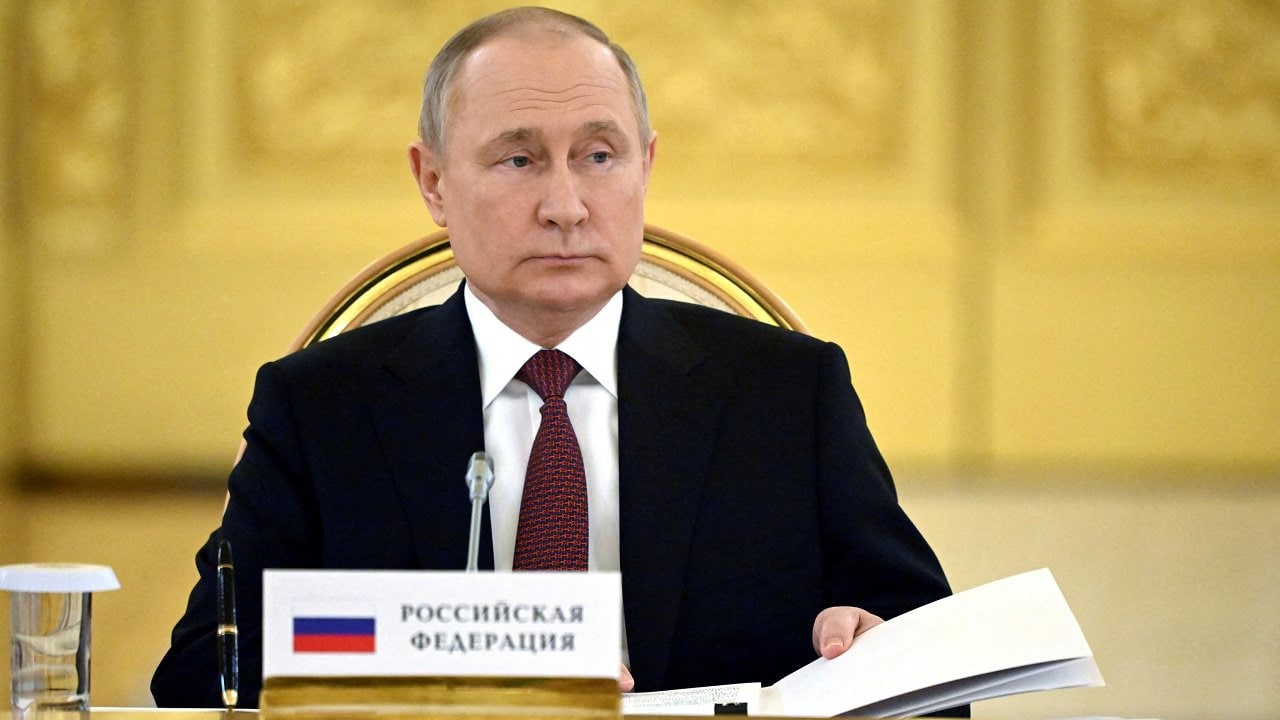You may recall that Russian dictator Vladimir Putin launched his second invasion of Ukraine on February 24, 2022 with two goals in mind: Ukraine’s “demilitarization” and “de-Nazification.”
Both goals were absurd, as Ukraine posed absolutely no military threat to Russia and the number of bona fide Ukrainian Nazis could be counted on the fingers of one hand. Both goals were especially absurd as it was Putin’s Russia that threatened Ukraine militarily and adopted all the earmarks of a fascist regime: authoritarianism, chauvinism, a bloodthirsty dictator, and a cult of personality.
Whatever the case, Putin’s spokesman Dmitry Peskov recently announced the good news: Ukraine has been demilitarized! Here are his exact words:
“Indeed, Ukraine was heavily militarized at the time of the beginning of the Special Military Operation. And, as Putin said yesterday, one of the tasks was to demilitarize Ukraine. In fact, this task is largely completed. Ukraine is using less and less of its weapons. And more and more it uses the weapons systems that Western countries supply it with.”
Peskov’s is a strikingly bizarre interpretation of demilitarization. True, Ukraine has used up much of the equipment and ammunition that hailed from Soviet days. Equally true, it’s been the recipient of far more effective and modern and NATO-compatible weapons systems from the fifty-plus countries in the Ramstein group.
Just how this amounts to demilitarization, especially at a time when Ukraine has launched what appears to be a successful counteroffensive, is unclear.
By the same logic, Peskov could claim that NATO enlargement has been stopped because Finland joined the alliance and there’s no one to its east.
On the other hand, Peskov’s illogic makes perfect sense. Since, as the Kremlin claims, Russia never attacked Ukraine, its bombs never fell on civilians, the Kakhovka dam explosion was the handiwork of those crazy Ukrainians, the Bucha massacre never happened, and, oh yes, Putin is a true-blue democrat—why not continue substituting delusion for reality?
Of course, there may be more than just silliness at work here. Imagine that Putin and his comrades in arms know that the war is going badly. After all, despite the incessant bluster to the contrary, how can they not? Imagine as well that they’re looking for an elegant way out of the mess. So, why not declare victory and use it as the rationale for a gradual draw-down?
That may be too clever by half for Putin and Co. Alternatively, as Samuel Johnson said in 1777, “Depend upon it, sir, when a man knows he is to be hanged in a fortnight, it concentrates his mind wonderfully.”
A 19FortyFive Contributing Editor, Dr. Alexander Motyl is a professor of political science at Rutgers-Newark. A specialist on Ukraine, Russia, and the USSR, and on nationalism, revolutions, empires, and theory, he is the author of 10 books.
From 19FortyFive
Ukraine Footage Shows U.S. M982 ‘Excalibur’ Cut Through Russian Artillery
How To Sink A $3 Billion Dollar Submarine: Leave A Hatch Open
Smashed To Pieces: Video Shows Ukraine Hitting Russian Air Defenses

